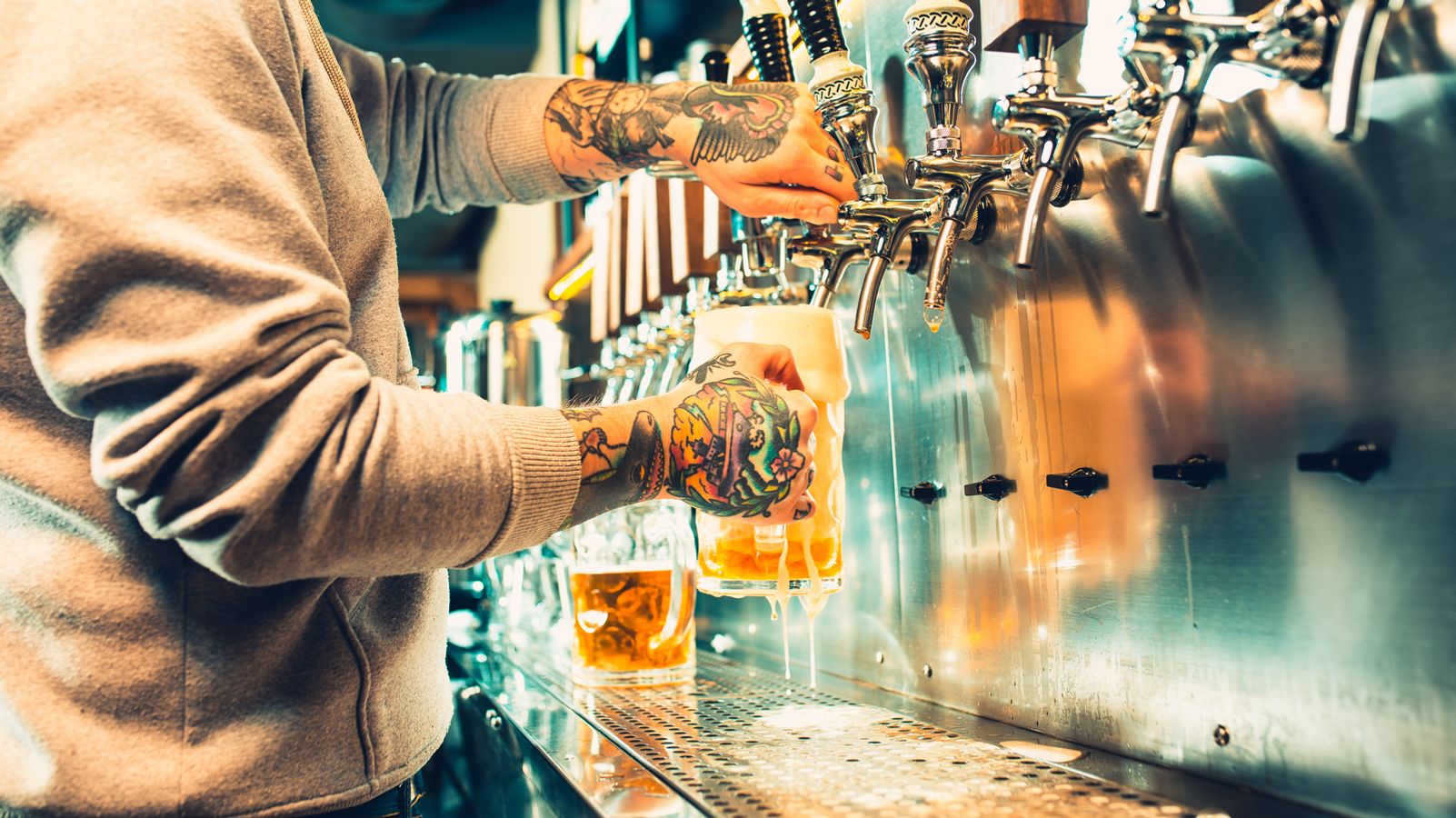Brewery manager: No restaurateur or brewer makes a living by paying extra
Even if some of the customers “whine,” he says: “We try to pass on the prices, no entrepreneur, innkeeper or brewer lives from paying more.” And so rise beer pricesalso at the Bavarian folk festivals: not only in the premium location in downtown Munich, but also elsewhere.
Beer prices at the folk festivals: At the Augsburg city festival, the Maß Hasenbräu now costs 11.20 euros, at the Pfingstdult in Simbach the Maß has risen by 60 cents to 10.80 euros. And in Burghausen a little more from 9.40 to 10.10 euros.
“Greed inflation” in the gastro?
Some people wonder if the hospitality industry isn’t taking advantage of the situation to boost profits. Joachim Ragnitz from the ifo Institute comes to the conclusion that this applies to companies primarily in trade, transport and construction, but also to the hospitality industry. According to his calculations, “companies in the hospitality and transport sectors have increased their prices significantly more than would have been expected based on the rise in wholesale prices alone” – i.e. in prices such as energy.
According to the hotel and restaurant association DEHOGA, however, the turnover in the hospitality industry is still well below the pre-corona level. Even after three years of losses in a row, the domestic restaurants and hotels have still not reached the pre-crisis sales. Compared to the first quarter of 2019, i.e. before the outbreak of the pandemic, hospitality sales fell by 12.5 percent in real terms from January to March.
Increase sales instead of prices
DEHOGA President Angela Inselkammer in Bavaria also senses that consumers are more reluctant to consume. In Aying she runs the “Hotel Aying” brewery inn. The guests are still coming, but here as elsewhere there are no longer any certainties, she says: “Everyone has a bit of a head down and doesn’t know what’s going on, you hear bad economic data, you hear that people have problems.”
Rising food and staff costs led to higher prices in the catering and hotel sectors. The Bavarian DEHOGA President sees only one way to break the cycle: “Two occupancy at lunchtime, two occupancy in the evening, then the guests can only stay for two hours.” In this way, restaurateurs could achieve higher sales with the same staff in the kitchen and service.
Smaller portions, higher prices, fewer guests
There are other tricks in the industry to increase sales: serving less, such as beer in 0.4 liter glasses. Or put less on the plate and serve one schnitzel instead of two. Extras like ketchup or oat milk have to be paid extra.
All of this will only work if the restaurant is in such high demand that customers still come. For hoteliers and gastronomy, it remains a tightrope walk to pass on rising prices. Because if the beer gets too expensive, customers end up drinking it at home.
